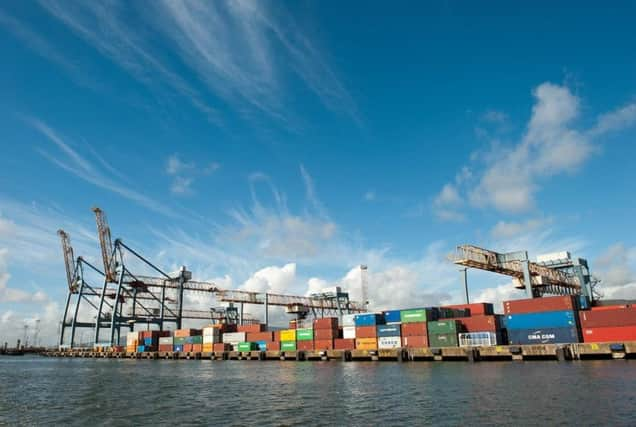November brings record rise in new export orders - PMI


The positive data comes in the November Ulster Bank PMI report as companies benefited from the ongoimng weakness in sterling.
However, the latest report, produced for the bank by Markit, also indicates that the rate of input cost inflation quickened again and companies raised their output prices sharply.
Advertisement
Hide AdAdvertisement
Hide Ad“The first three quarters of 2016 saw a deceleration in growth in Northern Ireland’s private sector,” said the Ulster’s chief NI economist Richard Ramsey.
“However, following stagnation in the third quarter, the final three months of the year are shaping up to be much better.
“Indeed, business activity accelerated further in November, with the rate of expansion representing an eight-month-high.
“Meanwhile new orders returned to growth for the first time in five months with local firms’ order books expanding at their fastest rate since September 2014. This suggests the economy has regained some momentum going into 2017.”
Advertisement
Hide AdAdvertisement
Hide AdBut while the latest data is positive at a headline level, Mr Ramsey said it was “something of a mixed bag within”.
“The positives include export orders and the strong performance of the retail and manufacturing sectors. Meanwhile the challenges include inflation, the slowdown in employment growth and the underperformance of the services and construction industries.
“Export orders increased at a record rate in November with the pace of expansion eclipsing the previous high by a considerable margin. Sterling’s marked depreciation has boosted the price competiveness of manufactured products in export markets. Manufacturing output and new orders hit 25-month and 17-month highs respectively. The favourable exchange rate has also been responsible for a surge in cross-border shopping, sending retail sales and orders to almost 2½-year highs.
“Despite their strong sales performance, retailers and manufacturers are not without their challenges. Chief amongst these is inflation. The downside of a weak currency is import price inflation. Northern Ireland’s manufacturing firms have recently seen their input cost inflation hit a 99-month high.
Advertisement
Hide AdAdvertisement
Hide Ad“Consumers should therefore brace themselves for significant price rises in 2017.
“Besides inflation, another concern is the slowdown in the rate of employment growth. Last month, Northern Ireland firms raised their staffing levels at the weakest rate since June 2015 with manufacturing and construction firms reporting job losses. Meanwhile the subdued performance of the services sector and ongoing contraction within the construction sector are worrying. The construction sector’s fortunes conceal reasonable activity in Northern Ireland but a fall-off in demand in their dominant market, GB. Both these sectors are underperforming relative to their long-term growth rates.